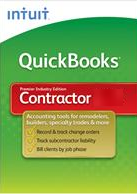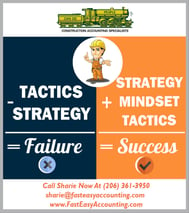
Did you know that 39% of projects fail due to budget issues? For small businesses and entrepreneurs, the stakes couldn’t be higher. Managing a project budget is not just about numbers; it’s about ensuring your business is profitable. By understanding the essential steps of project budgeting, you can turn potential pitfalls into opportunities for success. Whether launching a new service or expanding your services, mastering project budgeting is invaluable for achieving your construction business goals.
Understanding Project Budgeting
Project budgeting is a crucial component of successful project management. At its core, a project budget is the total estimated cost of all the tasks, activities, and materials associated with a project. It serves as a roadmap for project managers, offering a framework for allocating resources and tracking expenses throughout the project lifecycle.
Budgeting is essential for several reasons. A well-prepared budget helps control costs, ensuring that project expenditures don’t exceed available funds. It also improves resource allocation by identifying potential bottlenecks and enabling more informed decision-making. Additionally, effective budgeting aids in risk management by setting aside contingency funds to cover unforeseen expenses, thereby reducing the likelihood of project failure.
Read More
Topics:
Construction Bookkeeping,
Systems And Processes,
Construction Project Managment,
Bookkeeper,
Project Management,
Construction Systems And Processes,
Construction Bookkeeper,
Project Budgeting
If you ask 100 business owners what they like least about running a business, bookkeeping will likely rank high. It's an annoying and frustrating chore that takes up much time and is easy to put off until tomorrow.
Avoiding your bookkeeping is dangerous, however. Not knowing your construction company's financial situation can result in missteps that could ultimately cost you your business.
When starting bookkeeping as a construction business owner is challenging, a good first step is to break the process down into manageable tasks.
Read More
Topics:
10000 Hours of Bookkeeping Practice,
Construction Bookkeeping,
Systems And Processes,
Bookkeeper,
Construction Systems And Processes,
Construction Bookkeeper
It's amazing how some books stand the test of time. We usually refer to one of our most recommended, Stephen Covey's The 7 Habits of Highly Effective People, when we mentor our contractor clients and employees. Although it was first published three decades ago, its lessons are still incredibly relevant for business owners. You might wonder – how these habits fit into today's landscape of changing trends, tight deadlines, and constant distractions. The short answer is that they're timeless because they focus on principles that help you stay grounded while growing your construction business.
Below, we'll break down some of Covey's key habits and explore how you can bring them to life in your business today. Think of this as your blueprint for thriving in the chaos, not just surviving it.
Read More
Topics:
Construction Bookkeeping,
Systems And Processes,
Reading List,
Construction Systems And Processes,
contractor habits,
Good Construction Business Owner Habits

We are witnessing a remarkable transformation driven by Artificial Intelligence (AI) and automation. While these advancements promise to enhance efficiency and speed, business owners must recognize the enduring importance of soft skills in their teams for long-term success and competitiveness.
The construction industry has also experienced a significant transformation in recent years, driven by technological advancements. From project management software to drones and Building Information Modeling (BIM), construction business owners leverage these tools to enhance productivity, improve safety, and boost profitability.
This blog post will explore how you, as a construction professional, can thrive in today’s tech-driven environment and what skills you can build upon to remain adaptable.
Access to the best available tools and information is vital in almost any operation but is especially crucial in the competitive construction and home service industry. To help with your year-end bookkeeping tasks, take advantage of our exclusive 40% discount on Bookkeeping Templates (consulting, bookkeeping review, and outsourced accounting subscriptions excluded) and Construction Accounting Academy classes through January 6, 2025. you can use our promo code YEAREND40.
Read More
Topics:
Systems And Processes,
QuickBooks Year End Closeout,
Technology For Your Construction Company,
Happy New Year,
Construction Systems And Processes,
Year End Tips For Construction Contractors
As the year draws to a close, construction business owners find themselves in a critical period of reflection and preparation. The year's end is a time to celebrate past successes and an opportunity to assess financial health and strategize for the coming year. A thorough year-end financial checklist can help ensure your business is on solid footing as you move forward.
Access to the best available tools and information is vital in almost any operation but is especially crucial in the competitive construction and home service industry. To help with your year-end tasks, take advantage of our exclusive 40% discount on Bookkeeping Templates (consulting, bookkeeping review, and outsourced accounting subscriptions excluded) and Construction Accounting Academy classes now through January 6, 2025. you can use our promo code YEAREND40.
Read More
Topics:
QuickBooks Year End Guide,
Systems And Processes,
QuickBooks Year End Closeout,
Xero Year End Closeout,
Happy New Year,
Happy Holidays,
Construction Systems And Processes,
Year End Tips For Construction Contractors
The holiday season is usually filled with joy and celebration. Still, it can also bring significant stress for construction business owners. With project deadlines, year-end financial tasks, and the hustle and bustle of the festivities, it's easy to feel overwhelmed.
Here are some strategies to help you manage stress and prioritize your well-being during this busy time of year.
1. Set Realistic Goals
As project timelines draw near their conclusion, it can be tempting to push for everything to be finished before the holidays. However, setting realistic goals for yourself and your team is crucial. Prioritize tasks that must be completed and recognize that some projects may need to be deferred until the New Year. This will help reduce pressure and allow for a more balanced method as the holidays approach.
Read More
Topics:
Stress Reduction For Contractors,
Thanks To Everyone Involved In Construction,
Systems And Processes,
Merry Christmas,
Business Plans,
Happy Holidays,
Construction Systems And Processes,
Switching Off During The Holidays
The construction industry is dynamic and challenging, and a business's success or failure can hinge on various factors. As we approach the end of another year, it's essential to take a step back and assess your company's successes and challenges.
Contracting is notorious for its complexities and ever-changing landscape. It is crucial to evaluate what worked well, what didn't, and what lessons we can carry into the following year. These are my key takeaways from phone chats and emails with our clients, industry friends, and followers. Use this as a template - remove, add, and reflect on this list to hold yourself accountable for what you can improve.
Read More
Topics:
Construction Strategy,
Systems And Processes,
BPM,
Business Plans,
Processes,
Construction Systems And Processes,
Construction Business Review
The recent cyber outage is a stark reminder of digital systems' vulnerability and potential impact on businesses, including those in the construction industry. This incident offers several critical lessons for construction bookkeeping.
As a contractor, your accounting and bookkeeping systems are vulnerable not only to cyber threats but also to software outages, which can compromise sensitive financial data and disrupt business operations.
In this blog post, we'll explore the implications of the recent cyber outage for construction accounting and bookkeeping and provide actionable tips to strengthen your defenses.
Read More
Topics:
Construction Bookkeeping And Accounting,
Systems And Processes,
security,
cybersecurity,
Construction Systems And Processes
Starting a construction business without a plan is like setting sail without a compass. While you might eventually reach your destination, the journey will likely be longer and more challenging. A well-constructed business plan is essential for guiding your business toward success.
Here's why
It Clarifies Your Vision
A business plan helps you articulate the vision for your enterprise. It forces you to think through every aspect of your business, including what you want to achieve and how you plan to get there. This clarity is crucial for communicating your vision to potential investors, partners, and employees.
Read More
Topics:
Strategic Planning,
Business Plans,
Business Plan For Your Construction Company,
Systems,
Business Planning For contractors,
Construction Systems And Processes
As a construction business owner, you must stay informed about your finances and financial situation. You do this through bookkeeping, the process of recording transactions in your business. This includes transactions, credit card charges, and any other economic activity within your company.
Financial management can easily be overlooked when managing projects, dealing with subcontractors, and ensuring customer satisfaction. However, neglecting proper bookkeeping can significantly impact the growth and success of your construction business.
Read More
Topics:
Bookkeeping For Electrical Contractors,
Bookkeeping For Commercial Tenant Improvement Cont,
Bookkeeping For Custom Home Builders,
Bookkeeping For Remodel Contractors,
Bookkeeping Needs,
Bookkeeping For Plumbing Contractors,
Bookkeeping,
Construction Bookkeeping,
Systems,
Construction Systems And Processes










































